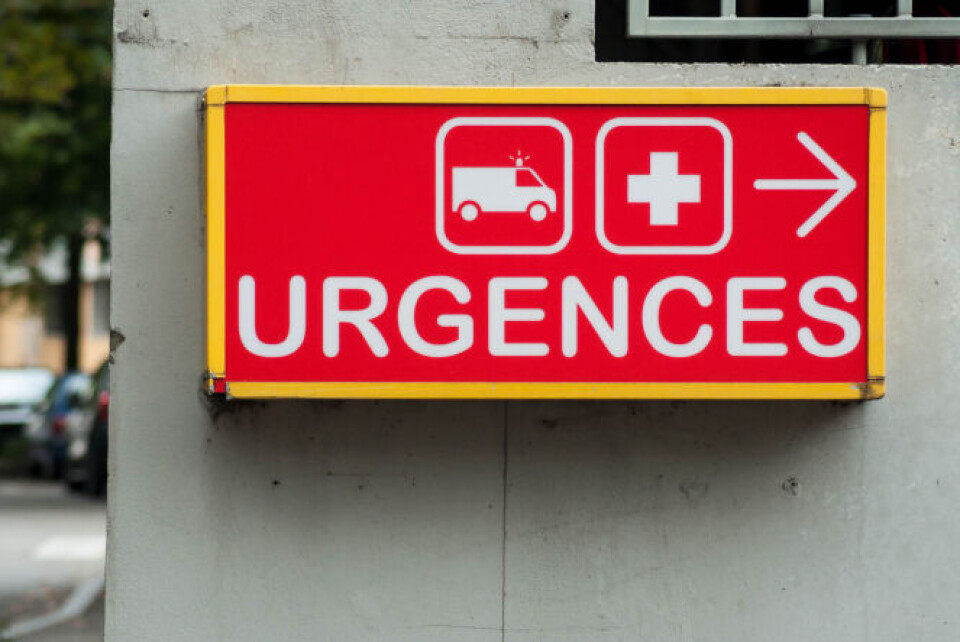-
Roadside noise cameras await approval to start issuing fines for loud vehicles in France
The devices known as meduses already exist in several cities but so far have only been ‘instructional’
-
White storks make strong return in France via nest ‘platforms’ and clipped wings
The Ligue pour la Protection des Oiseaux shares the conservation challenges in saving these birds from extinction
-
Hosting scheme in south-west France lets newcomers sample lifestyle
Households in nine Dordogne communes volunteer under Mes Nouveaux Voisins scheme
French hospitals to set flat fee of €19.61 for A&E care from January 1
The charge will only apply to patients who are not hospitalised after their visit, with reductions for certain other categories of people

Hospitals in France are to charge a fixed-rate sum of €19.61 from January 1 for patients who go to the accident and emergency ward (urgences) but are not then admitted to hospital.
This charge will not apply to patients who are hospitalised and will be covered by top-up insurance policies if the patient has one.
The change is part of a new social security financing law (loi de financement de la Sécurité sociale) that aims to simplify hospital charges.
The charge up to now was €25.28 for A&E treatment without hospitalisation, plus extra itemised fees for specific services received.
All of this has been reimbursed at 80% of state tariffs, with most of the remainder (called le ticket modérateur) usually picked up by mutuelles.
The new fixed fee will be covered by mutuelles.
Read more: French 'top-up' health insurance explained
There are some full exemptions to the fee, including for child victims of violence, victims of terrorism and Covid patients.
Additionally, pregnant women, people with a long-term illness (ALD) and certain other categories of people will have a reduced fee of €8.49 to pay, again covered by mutuelles.
The change will not make a big difference for patients, as the charge will be covered for those with top-up insurance policies - which the majority of people in France have -, and will be similar to what people without mutuelles would have had to pay anyway.
The government has introduced the change to reduce inequalities in the provision of emergency services.
With some hospitals moving towards American-style payments, with every plaster and swab itemised and charged for, bills could mount up, especially for those with no mutuelle. Where there was a remaining part, the hospital would usually send a bill in the post.
This has notably been a problem with Covid patients, with some facing very large hospital bills.
“[The new system] will ensure an end to the large sums some patients have been left to pay out of their pockets,” the law’s preface said.
The government has said it hopes the change will also free up A&E staff and mean patients will prioritise GP visits for non-emergency matters.
The new system was originally supposed to come into effect in September 2021 but was pushed back to January due to the impact of the pandemic and other factors.
When the law was first adopted, the fixed fee was set at €18 but it was later increased.
Related stories:
Pharmacists in France allowed to renew and adjust repeat prescriptions
Fears that Omicron case surge could disrupt public services in France
Hospitals in France ‘paralysed’ by non-vaccinated, says leading medic
























